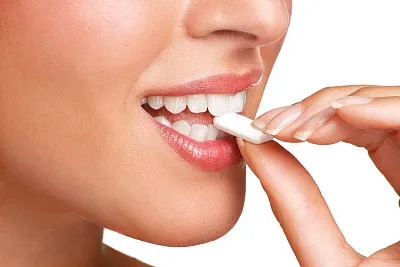The Essential Guide to Dental Health and When You Might Need to Extract a Tooth for Optimal Care
Summary: Dental health is a cornerstone of overall well-being, influencing both physical health and self-esteem. This essential guide provides a detailed overview of maintaining optimal dental hygiene, recognizing signs warranting tooth extraction, and navigating dental care challenges. It emphasizes the importance of regular check-ups and preventive measures, while also addressing when a tooth may need to be extracted. Through understanding these factors, individuals can make informed decisions regarding their dental care, ultimately promoting a healthier and more confident smile.
1. Importance of Regular Dental Check-Ups

Regular dental check-ups are essential for maintaining optimal oral health. These visits allow dental professionals to monitor any changes in the mouth, identify potential issues before they escalate, and provide professional cleaning to remove plaque and tartar buildup. By adhering to a routine dental schedule, the likelihood of more severe dental problems emerging is significantly reduced.
Moreover, frequent visits also enable dentists to spot early signs of dental diseases, such as gingivitis or cavities. Detecting these problems at an early stage can save patients from more invasive treatments later on. The preventive approach offered by regular check-ups fosters a proactive stance towards dental health, empowering individuals to take charge of their oral hygiene.
Consequently, it’s advisable to visit the dentist twice a year for routine cleanings and examinations. However, individuals with specific dental concerns or risk factors may require more frequent visits tailored to their individual needs.
2. Understanding Dental Hygiene Practices
Proper dental hygiene is a fundamental aspect of oral health that should not be overlooked. Essential practices include brushing at least twice a day, flossing daily, and using mouthwash to enhance oral hygiene. These daily habits help prevent plaque formation, fight off bad breath, and keep gums healthy. It’s important to use fluoride toothpaste, as fluoride strengthens tooth enamel and wards off decay.
In addition to daily routines, diet plays a crucial role in dental health. A balanced diet rich in vitamins and minerals supports not only the teeth but also overall health. Foods high in sugar can lead to cavity formation; thus, limiting sugary snacks and beverages and replacing them with healthier options like fruits and vegetables is advisable.
Regularly replacing your toothbrush and ensuring it’s in good condition is another integral component of dental hygiene. Using a soft-bristled toothbrush can help prevent gum damage while effectively cleaning the teeth. By committing to these hygiene practices, individuals can maintain healthier teeth and reduced risks for dental problems.
3. Identifying When Tooth Extraction is Necessary
Not all dental issues can be resolved with preventive measures; sometimes tooth extraction is necessary. Common reasons for extraction include severe decay, advanced gum disease, or teeth overcrowding. For example, a tooth that is too damaged from decay may be unrepairable, necessitating its removal to prevent further complications.
Furthermore, wisdom teeth often need to be extracted due to insufficient space in the mouth, which can lead to overcrowding and alignment issues. If wisdom teeth become impacted, they can cause pain and swelling, signaling a need for extraction. Seeking professional advice when experiencing difficulties with wisdom teeth is critical to ensuring optimal dental health.
In cases of dental emergencies, such as injuries resulting from an accident, extraction may be required to alleviate pain and prevent infection. Understanding these circumstances and recognizing when it’s time to consult a dentist can save individuals from ongoing discomfort and potential health complications.
4. Aftercare and Recovery Post-Extraction
Post-extraction care is vital to promote healing and reduce the risk of complications. Immediately following the procedure, patients are usually advised to bite down on a gauze pad to minimize bleeding. It’s also recommended to rest and avoid strenuous activity for at least 24 hours following the extraction.
Pain management is an important aspect of recovery; over-the-counter pain relievers or prescribed medications can help manage discomfort. Additionally, patients should stick to a soft food diet, avoiding hard, hot, or spicy foods that could irritate the extraction site during the healing phase.
Maintaining proper oral hygiene during recovery is essential as well. Dentists provide guidelines on how to clean the mouth carefully without disturbing the extraction site. Following these recommendations ensures a smoother recovery and helps to prevent infections.
Summary:
In conclusion, understanding the essentials of dental health is paramount for optimal care. Regular dental check-ups and proper hygiene practices form the foundation of a healthy mouth. Recognizing when extraction is necessary and adhering to aftercare protocols can help mitigate risks and promote healing. By prioritizing oral health, individuals contribute to their overall health and well-being.
This article is compiled by Vickong Dental and the content is for reference only.



